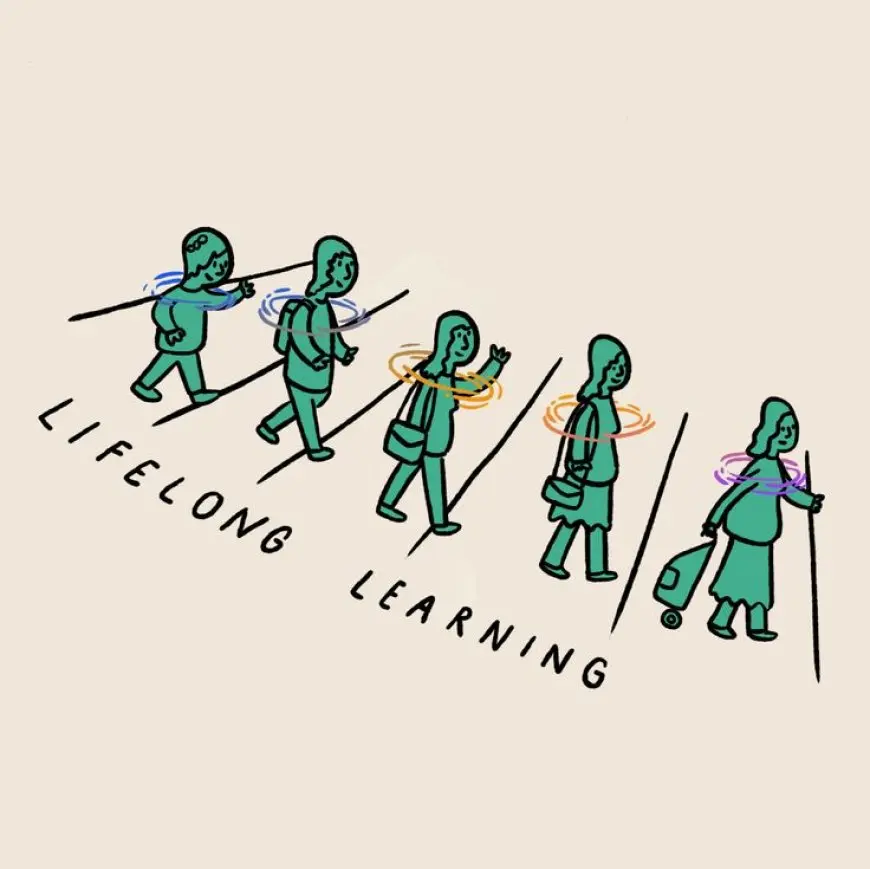The Benefits of Being a Lifelong Learner
The Benefits of Being a Lifelong Learner

In a world that is constantly changing, the concept of lifelong learning has become more essential than ever. Lifelong learning is the practice of continuously developing new skills, acquiring knowledge, and adapting to new challenges throughout one's life. It involves a mindset that values learning not just during formal education years but throughout adulthood, in both professional and personal spheres. The benefits of being a lifelong learner extend far beyond just enhancing career prospects; it also plays a critical role in personal growth, mental well-being, and overall life satisfaction.
One of the most significant benefits of lifelong learning is its positive impact on career development. In today’s fast-paced, technology-driven world, industries evolve quickly, and new trends, tools, and techniques emerge regularly. By committing to continuous learning, you remain relevant in your field, increase your expertise, and boost your employability. Whether it’s through formal education, online courses, workshops, or even self-study, lifelong learning ensures that you are well-equipped to meet the demands of an ever-changing job market. It helps you stay competitive, adapt to new technologies, and opens doors to new career opportunities, promotions, or career changes.
Beyond career advancement, lifelong learning also supports personal growth. Learning new things stimulates your mind, keeps it sharp, and enhances your cognitive abilities. As you explore new subjects, whether they are related to hobbies, languages, or other interests, you broaden your horizons and gain a deeper understanding of the world around you. This intellectual curiosity leads to a more fulfilled and meaningful life, as you develop a greater appreciation for diverse ideas, cultures, and experiences. It also helps you stay curious and engaged in life, making every day an opportunity to discover something new.
Another key benefit of lifelong learning is its impact on mental health. Engaging in continuous learning has been shown to boost self-esteem and confidence. By mastering new skills or acquiring new knowledge, you experience a sense of accomplishment and personal pride. This can combat feelings of stagnation or boredom, which are common contributors to stress and anxiety. Moreover, learning new things can promote a positive mindset, as it encourages flexibility, resilience, and adaptability. It fosters a sense of control over your life, helping you feel more confident in facing challenges or unexpected situations.
Lifelong learning also improves social connections and communication skills. Many opportunities for learning, such as group courses, book clubs, or community events, provide platforms for meeting new people and forming relationships. These connections can enrich your life by broadening your social circle and exposing you to diverse perspectives. Additionally, as you engage in discussions, debates, and collaborative projects, your communication skills naturally improve, making you a more effective listener, speaker, and problem solver. In both personal and professional contexts, strong communication skills are invaluable, and learning fosters this capability.
Incorporating lifelong learning into your routine can also help you embrace failure as a learning opportunity. When you approach learning with an open mind and a willingness to make mistakes, you develop a growth mindset. Instead of viewing setbacks as obstacles, you learn to see them as chances to improve, grow, and innovate. This resilience is crucial for overcoming challenges, both in the workplace and in life, as it allows you to bounce back stronger and more determined.
Moreover, lifelong learning offers the chance to explore passions and interests that may not be directly related to your career. This personal enrichment can enhance your overall well-being by providing a creative outlet and a sense of purpose. Whether it’s learning a musical instrument, studying a new language, or diving into a new field of science, these activities bring joy and satisfaction that contribute to a well-rounded and balanced life.
Finally, lifelong learning fosters a sense of achievement and curiosity that is deeply satisfying. As you embark on new learning journeys, you continually challenge yourself and expand your capacity to achieve more. This process of continuous improvement can have a profound impact on your self-worth and motivation. It can also inspire others around you to pursue their own learning goals, creating a positive cycle of growth within communities, organizations, and even families.
In conclusion, lifelong learning is an invaluable practice that brings a wealth of benefits. It empowers you to grow both personally and professionally, enhance your mental well-being, build strong social connections, and adapt to change. Embracing this mindset encourages curiosity, resilience, and self-confidence, enriching your life and ensuring that you remain relevant, engaged, and fulfilled. The benefits of lifelong learning are not just for career advancement—they are key to living a rich, meaningful, and exciting life.







